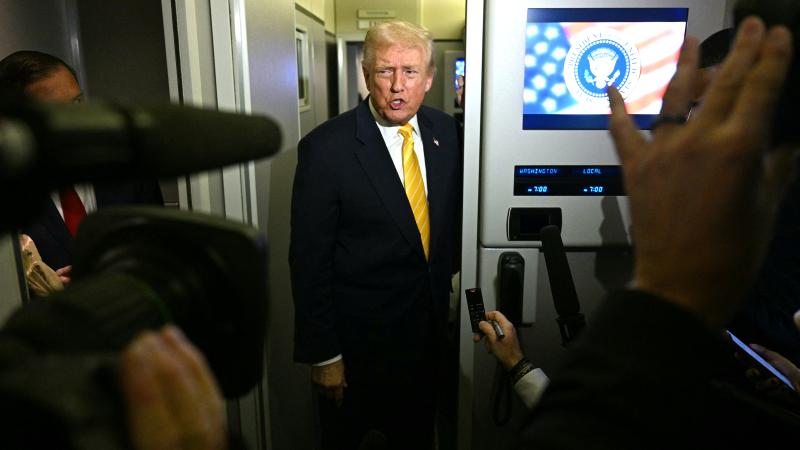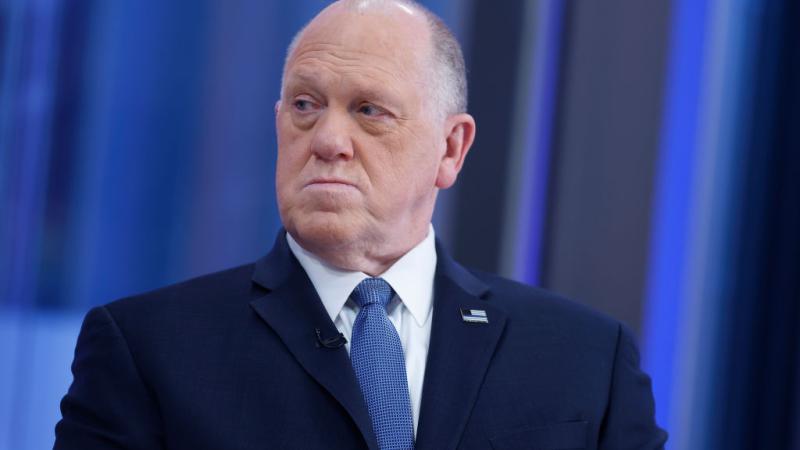Despite border security woes, Middle East war, decades-long plan for European army now all but dead
Spain’s Ministry of Foreign Defense called the notion “unrealistic and unaffordable.”
The likelihood of a European army – years in the potential making so that European nations could unite in defense of mutual enemies – appears all but dead now.
The idea dates back to the 1950s, and appeared to reemerged in earnest about eight years ago.
French President Emmanuel Macron and former German Chancellor Angela Merkel each expressed their support for such an army, particularly Macron in 2018 when the U.S. withdrew from the Intermediate-Range Nuclear Forces Treaty and amid then-President Donald Trump's protests that NATO member nations weren't paying their share to protect against mutual foes.
Earlier this year, the Italian Foreign Minister Antonio Tajani again touched on the idea – only to received almost immediate pushback from his country’s European allies.
“If we want to be peacekeepers in the world, we need a European military,” he said, amid the global migration and related border-security issues the U.S. also faces.
“In a world with powerful players like the United States, China, India, Russia, and with crises from the Middle East to the Pacific … we can only be protected by the European Union,” which “must be prepared,” he also said.
Tajani is also Italy’s deputy prime minister, and his country was a founding member of the European Union, NATO and of the Group of Seven (G-7) countries, with Italy holding the group's rotating presidency this year.
So his words had weight, and they sent a chill across Europe.
Spain’s Ministry of Foreign Defense called the notion “unrealistic and unaffordable.”
The Defense Ministry in Copenhagen said: “Denmark does not support establishing an EU army.”
There were similar comments from France, Poland, Slovenia and elsewhere in the EU.
Most criticisms focused on the bureaucratic hurdles for forming such a force, and the current structure that has most European militaries working within the context of NATO.
The prevailing thought now is that Trump, the 2024 Republican presidential nominee, if reelected, would not outright quit NATO but would take a big step back in what Trump adviser Dan Caldwell calls a “radical reorientation” of the group.
So why is a European army – which would draw money and troops from the European nations and operate under a central command – not on the table for most Europeans?
“There are superficial similarities between the United States in the 18th Century and the European Union today,” Gregory Alegi, a historian and political scientist who specializes in U.S. history for LUISS University in Rome, told Just the News. “Both started as confederations of autonomous states that began a process of deepening ties between them.”
But Alegi noted that the U.S. had a national army and a powerful chief executive (the president) before it had a common currency and a single economy. The European Union has done those things in reverse order.
“The European Union of today is more like the United States under the flawed Articles of Confederation than to the U.S. Constitution that replaced it,” Alegi said.
“Under the Articles of Confederation there was no president, the country was led by the president of the Continental Congress and that person had no power when Congress was not in session. It’s a lot like the European Union of today.”
Alegi said that in 1957, when the seeds of the European Union were planted with the six-nation European Economic Community there were talks of establishing a common army, but the idea never gained much traction.
“The notion collapsed because there was a fear it would be dominated by one country, it would have been France at the time,” he continued. “Remember this is in the wake of World War II. Domination by one country was a frightening idea.”
The historian said that while the European Union was not wired to include a European Army, he predicted it would happen eventually. But not in the near term.
“Europe is often described as an economic giant and a military and political dwarf,” Alegi said. “If Europe wants to play a role in the world it’s not enough to have lofty ideas about human rights and how the world should work. It must have the ability to support those ideas, which means taking a stance and backing them up. Europe has been slow on that, but they will have to do it. There is no alternative.”
The Facts Inside Our Reporter's Notebook
Links
- If we want to be peacekeepers in the world, we need a European military
- Spain's Ministry of Foreign Defense called the notion unrealistic and unaffordable
- most European militaries working within the context of NATO
- long-term viability of NATO has been cast in doubt
- not support the defense of member states
- a new Trump administration would not quit NATO outright
- a radical reorientation of NATO
- not on the table for most Europeans
- Gregory Alegi
- seeds of the European Union were planted with the six-nation European Economic Community
- lofty ideas about human rights and how the world should work
















